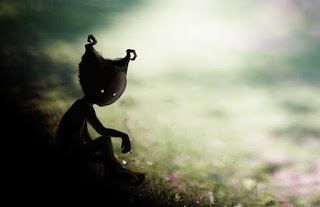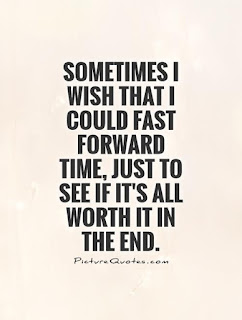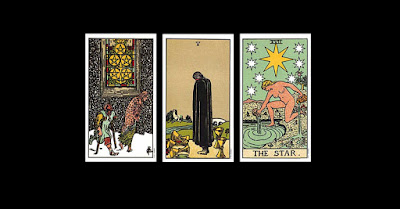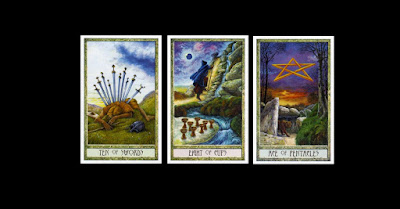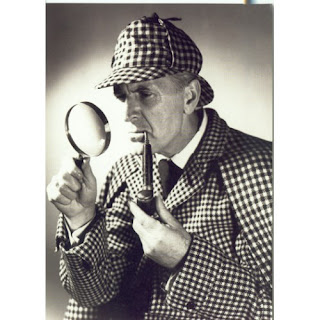“You spoke your words as though you denied the very existence of the
shadows or of evil. Think, now: where would your good be if there were
no evil and what would the world look like without shadow?”
― Mikhail Bulgakov, The Master and Margarita
― Mikhail Bulgakov, The Master and Margarita
It has been a hard year or so. That saying that goes, "Bad things come in three's" is a load of shit. Bad things come in two's, three's, four's, five's and so on. In the last year these are the things:
- The car died.
- The laptop died.
- My father died.
- My sister died.
- America died.
That last one was a wry joke my daughter made that still makes me laugh. Tori called me a few days after the election and upon hearing the depressed tone of my voice asked, "What's wrong, Mama?"
Sighing heavily I answered, "It's just hard to be positive right now. I know I'm depressed but I also know it's with good reason given this difficult year. I mean, my sister just died."
"And then America died," she quipped, and I burst into laughter. Thank goodness for dark humor right now.
The world seems a rather dark place at the moment. Putin and Assad are bombing children and kittens in Aleppo. Our soldiers are still killing and being killed in Afghanistan. President Elect Donald Trump (!) is surrounding himself with dark minions. I've gained 20 pounds in the last year, probably due to stress. The rent went up. My salary didn't. Mike lost his job. Despite mine and my family's efforts to save her, my sister died from leukemia four weeks ago. I've every reason to be depressed, but I don't want to be. I never want to be. Depression is a liar, a cheat, and a thief and it's running that train through my daily life.
I have learned from previous treks through this valley that I cannot combat depression by shaming
it away. I can't deny it away. I can't smile it away. I also can't do
nothing. The shadow of depression will thrive unless I sit with it,
face it, and accept the reasons it is here. I must remember not to
listen to its lies, but understand why it tells them. Every day, I am
determined to move in the direction of health and wholeness, but determined in bringing my
shadow with me for the lessons it teaches me are valuable.
So I've been thinking this recent turn in cultural events is like getting the light switched off in a room and having to live with the shadows for a while. That isn't all bad. Just as individuals have a "shadow side" so do countries and governments. I'm not speaking politics here -- so this isn't me saying Democrats are light and Republicans are shadow, that would be nonsense. I am talking about the impulses that we'd rather not have or deal with in others: rage, jealousy, cravings, lust for power, despair and fear. These are the shadows that compel people to violence and petty meanness. These are the shadows we fear in ourselves and in others.
After all, one can’t leave his shadow lying about… and not miss it sooner or later, don’t you agree?
One of the most famous shadows in
American literature is Peter Pan's shadow. At one point in the story,
Peter Pan loses his shadow as it gets caught in the window at the
Darling's. He comes back to retrieve it and Wendy ends up sewing it
back on for him, for which he takes credit as his own accomplishment, a
rather shady thing to do. Separated, his shadow takes on an independent
life of its own and cannot be controlled by Peter. Most importantly,
Peter was not complete without it. Although Peter Pan is the eternal
child, his approach to his shadow is very mature. It's only as we grow
up and learn that certain actions and even feelings are not condoned in
our society do we attempt to dissociate ourselves from our shadow, thus
giving it more power and independence than had we accepted it and kept
ourselves whole.
Carl Jung said that anything of substance will cast a shadow. “How can I be substantial if I do not cast a shadow? I must have a dark side also if I am to be whole” We can't pretend these feelings and the actions based on them aren't real. We can't shush them away. Many in our society have tried through censure and shaming but that doesn't work.
 |
| Light & Shadow Tarot by Michael Goepferd |
On a cultural level we're seeing a lot of unrestrained shadows and I do think this may be because we've spent a tremendous amount of effort to deny their existence, a shadow-lash of sorts. I've heard white people who did not vote for Trump, post election, expressing that they were feeling on edge, frightened and ill at ease in their own communities. People of color, on the other hand, responded that this is how they have always felt. Confronting our own shadow now many are finally experiencing the reality that so many others have lived and we're learning that proclaiming oneself to be "color blind" is revealed to be the mechanic of denial that it is. "Safe spaces" are important, but in practice merely served to silence dissenting speech. We thought we could shush our shadows away.
To be clear, I am not speaking of individuals here -- not the guy with the Confederate flag on his truck chasing motorists of color, not those assaulting Muslim women, not the hurlers of racial and homophobic epithets, not even the ones sexually assaulting women a la Donald Trump in this post-election freedom of shadow expression euphoria. I am speaking of the impulse behind these acts, the parts of human personalities we try so hard to stuff away, ignore, deny, excuse, but never accept.
When we judge others so quickly and harshly, we're doing it. Blame is simply deflecting attention from the shadow. The parents whose child was killed by an alligator in Florida were met not with condolences, but attacks and shaming. Those who overdose on drugs are made fun of in videos. Black men shot by police are subject to a shaming post mortem. The unemployed are told to "get a job!" like that hadn't entered their minds before. We are such a weak and fearful society that cannot deal with shadows but this is precisely the environment in which shadows, separated, thrive.
Y'all need Jesus or group therapy or something.
